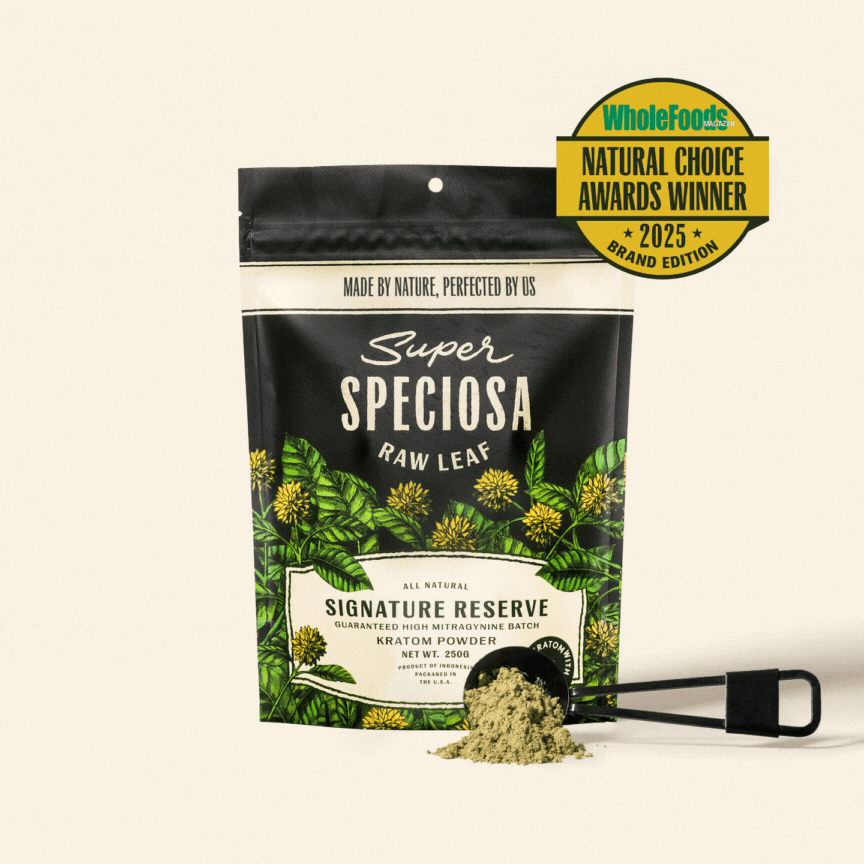American Herbal Products Association Includes Kratom in Latest Edition of Botanical Safety Handbook
AMERICAN HERBAL PRODUCTS ASSOCIATION INCLUDES KRATOM IN LATEST EDITION OF BOTANICAL SAFETY HANDBOOK

Kratom’s prominence as a botanical supplement has been on the rise as advocates clear legal hurdles and the science surrounding the plant evolves.
So much so that it’s drawing the attention of the wider herbal products industry.
Based on the growing “public interest” in kratom the American Herbal Products Association (AHPA) announced this summer that it has published an entry for kratom in its flagship trade publication. The timing has encouraged advocates, especially on the heels of the Food and Drug Administration (FDA) announcing a new approach to kratom. Now, those close to the industry are hoping this is another notch in kratom’s favor after a recent string of developments have started to normalize kratom for American consumers.
More specifically, kratom is now included in the second edition of the Botanical Safety Handbook, an “essential tool” that combines available data, research and context on over 500 species of herbs. It’s a first step toward kratom becoming more widely accepted as an herbal supplement, and an important development in the message it sends to both customers and governing bodies.
The Case for Kratom
According to Jane Wilson, AHPA Director of Program Development, the role of kratom in Southeast Asia qualifies it for consideration; now it’s up to the wider scientific and trade community to establish safe and consistent standards.
“Kratom has a long history of safe traditional use,” Wilson said. “But, as with any botanical, we encourage consumers to take safety information available in the Botanical Safety Handbook (BSH) and from other reputable sources into consideration when using herbs to support their personal health and wellness.”
Each entry in the BSH includes guidance and available information. Considerations include known drug interactions, adverse events/side-effects and a section for general pharmacological considerations to help inform producers and customers about specific herbs. For each claim, the BSH lists the context and available research for each herb and creates specific classifications based on safety.
Importantly, the AHPA based its entry on kratom leaves and tea, rather than extracts with high concentrations and/or additives. The BHS classifies kratom as not to be used during pregnancy or while nursing, and sets the stage for more information and research to be presented as it becomes available.
Larger Implications of Inclusion
Beyond the information provided, the inclusion of kratom by the AHPA shows the larger path kratom is on toward becoming a normalized dietary ingredient.
The AHPA has become one of the leading members in herbal and natural products since its creation in 1982. Both domestic and international companies make up the AHPAs more than 350 member institutions, which lean on the AHPA for standards in production, testing and adhering to regulatory standards. The AHPA helps with guidelines for FDA inspections, offers guidance on Good Manufacturing Practices (GMPs) and works in a variety of industries on testing for adulterants and impurities.
On the surface, those phrases and acronyms can come across as industry jargon. For those who have been fighting to maintain legal access to kratom, the offerings of the AHPA seem to be a bridge toward a robust regulatory structure.
Kratom is regulated by 13 states after Maryland signed its version of a Kratom Consumer Protection Act (KCPA) into law earlier this year. When it comes to making policy, lawmakers at all levels of government have struggled to find reliable information on kratom and its safety profile. As more research goes into kratom, having a resource such as the BSH will give kratom advocates an industry-accepted fact sheet to work off of.
It isn’t uncommon for policymakers and law enforcement to reference Google searches as a primary form of information, which usually leads them to FDA warnings about kratom. Advocates are quick to point out publicly funded research available from the National Institude on Drug Abuse, among others.
Included in each entry of the BHS are detailed descriptions of studies/research and specific information to be gleaned from those trusted sources. Rather than being buried by FDA notices and import alerts, the BHS offers kratom advocates the backing of a trusted, industry leader who has a history of working with the FDA on dietary ingredients.
At the same time, the FDA recently conducted a human-use study of kratom, a vital first step in the process of creating a profile of the plant. After years of actively working against kratom, the study is the first indication of the FDA changing its stance on kratom. Given the history between the FDA and a trade organization like the AHPA, advocates are hoping that the inclusion of kratom in a botanical trade publication is the first step toward creating a standardized industry in America.
“Even though (kratom companies) are competing against one another, there is a lot of cooperation,” said Ken Loricchio, co-founder of Super Speciosa who recently penned an op-ed in Benzinga about that FDA study and it’s implications. “We don’t always agree with how they do business, but more often than not you do see that people are genuinely interested in doing what’s right.”





